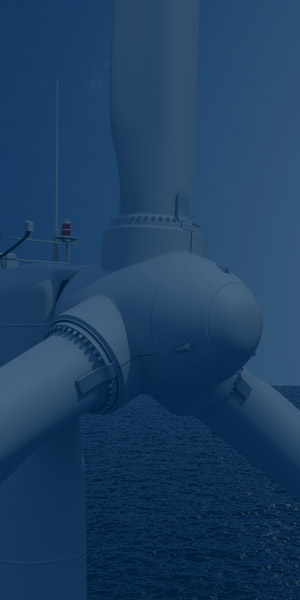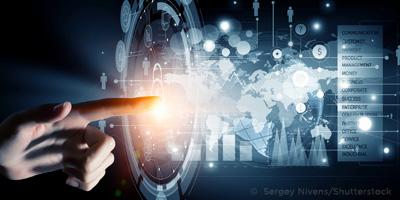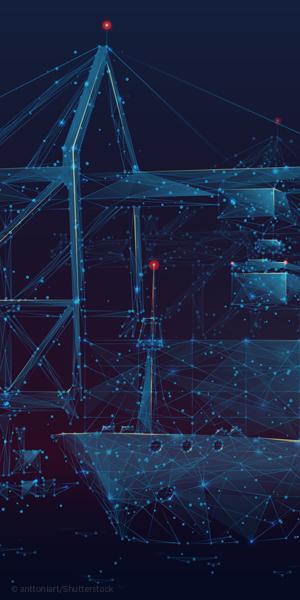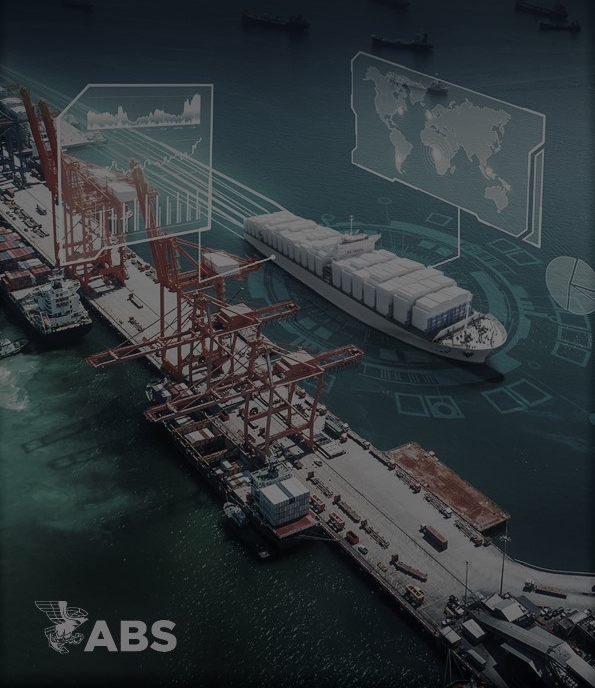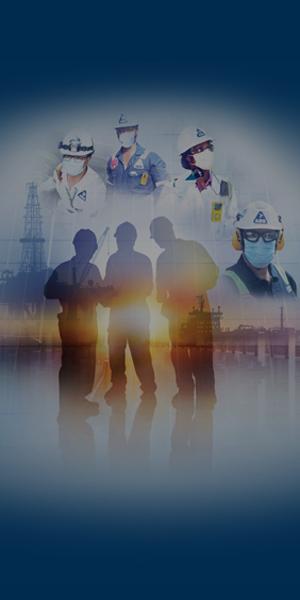Quick Links
- Rules and Resources
-
Services
Quick Links
Sustainability and Decarbonization- Energy Efficiency Existing Ship Index (EEXI)
- Sustainability Reporting and Assurance
- Simulation-based Energy Efficiency Evaluation Service (SIM EEE)
- Greenhouse Gas (GHG) Rating Improvement
- Greenhouse Gas Inventory and Carbon Accounting
- Carbon Capture, Utilization, and Storage (CCUS)
- Alternative Fuel Options
- Alternative Power Sources
- Marine Sustainability
- Offshore Sustainability
- Green Shipping Corridors
- Methanol Value Chain
- Gas
- Carbon Intensity Indicator (CII)
- Ammonia Value Chain
- Carbon Diligence Platform
- Innovation and Technology
-
News and Events
Quick Links
-
About
Quick Links
- Rules and Resources
- Services
- Innovation and Technology
- News and Events
- About Us and Careers
- Rules and Resources
- Rules and Guides
- Regulatory Updates
- Flag and Port State
- Engineering Software
- Engineering Reviews
- ABS MyFreedom™ Portal
- Databases
- Forms
- Services
- Classification
- Approval and Certification
- Company and Ship Audits
- Global Marine
- Global Offshore
- Global Government
- Sustainability and Decarbonization
- Digital Solutions
- Cybersecurity
- Maritime Training
- Innovation and Technology
- Technology Advancement
- Academic Engagement
- Industry Partnerships
- Data and Digitalization
- Knowledge Center
- About Us and Careers
- Who We Are
- Safety
- Careers
- Contact Us
ABS Digitalization Learning Program
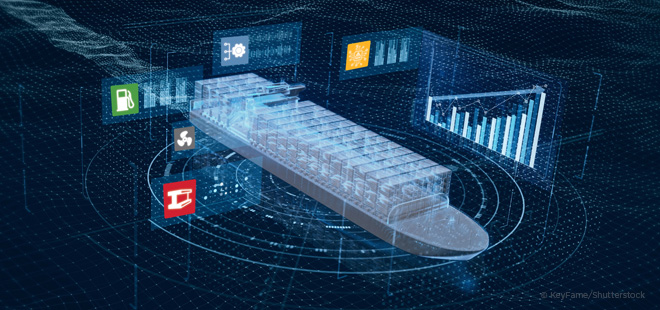
Program Overview
Computer-based modeling and simulation, as an essential component of digital transformation, is one of the most effective methods to address system complexities and performance in the maritime, aerospace, electronics, transportation and energy industries. The ABS Digitalization Learning Program – Modeling and Simulation of Systems is designed to teach and empower participants to deploy modeling and simulation strategies and techniques by developing valuable skill sets with hands-on training to support career development.
WHAT IS MODELING AND SIMULATION?
Modeling and Simulation (M&S) allows for a virtual representation of a physical asset that can be analyzed, configured, and tested in a safe and cost effective way. By employing multi-domain, physics-based simulation models, engineers can assess the performance and reliability of complex computer-based systems, evaluate various system designs, and validate system configurations through testing. The following are some examples where modeling and simulation can be applied:
Carbon reduction analysis of vessels
Ship routing optimization
Testing and validation of controllers of a computer-based system in a virtual environment
Application of new green technologies onboard vessels
Explore the Possibilities.
Course Objectives
This program provides trainees with the skill set necessary for using computer-based modeling and simulation in analysis, design, testing, verification, and sustainment of complex maritime products and systems.
Learning Outcomes
Participants will acquire the knowledge and techniques to build models of typical maritime systems using leading commercial software (e.g., Siemens Amesim) and hardware-in-the-loop system (e.g. Typhoon HiL), and use them in the lifecycle of those systems for various purposes such as concept selection, design optimization, carbon footprint evaluation, reliability and interoperability evaluation, and process optimization.
Possible Job Roles
Trainees who complete the program are equipped to work as a Modeling and Simulation Engineer, Systems Integration & Testing Engineer, Product Designer, Technical Lead, Product Manager, and Project Manager.
Focus Areas and Skill Sets
- Modeling and Simulation of Typical Systems (e.g., marine systems)
- Industry-Leading Software Application (e.g., Siemens Amesim)
- Fundamentals and Awareness of Emerging Technology Applications (e.g., Internet of Things (IoT), Machine Learning and Data Analytics)
- Concept and Deployment of a Digital Twin
Course Arrangement
The ABS Digitalization Learning Program – Modeling and Simulation of Systems consists of three (3) modules and will be delivered in a synchronous e-learning mode.
Module 1: Fundamentals of Marine Systems
This course section covers the following areas in classroom training:
- Overview of current trends, challenges, and opportunities in the maritime industry
- Introduction to the basic principles and practices of marine engineering
Module 2: Modeling and Simulation Principles and Applications
This course section covers the following areas in classroom training:
- Basics of modeling and simulation of systems.
- Practical skills using industry-leading software application (e.g., Siemens Amesim) and hardware-in-the-loop system (e.g., Typhoon HiL).
- Modeling and simulation tasks for various typical systems (e.g., 1D Mechanical, Electric Motors, Drives and Hybrids, Propulsion Architecture and Decarbonization, Control System, Virtual Testing, and Realtime Simulations)
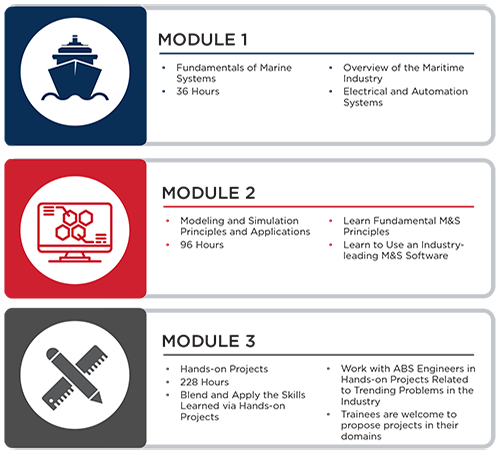
Module 3: Attachment
In the final course section, participants complete hands-on projects designed to:
- Digest the knowledge taught through hands-on projects and discussions with the training team and specialists
- Enable trainees to blend and apply the skills learned to tackle future challenges
Register Interest
Interested in learning more about the ABS Digitalization Learning Program – Modeling and Simulation of Systems? Simply submit the form below, and a member of our program team will contact you to provide additional details. We look forward to hearing from you!

© 2024 American Bureau of Shipping. All rights reserved.













